Social Innovation
At Friends-International, as a leading social enterprise, we continuously develop and refine new approaches, methodologies and tools to work with marginalized children, youth and families which respond to the on-going changing needs they face and social-economic conditions they live in.
Our models, designed alongside our teams and beneficiaries, are based on flexibility . They are thoroughly tested before being replicated across programs, projects and partners, effectively building systems for better and stronger global child protection.
Our programs and initiatives all directly support and reinforce the Convention on the Rights of the Child and contribute to the Sustainable Development Goals (particularly #1 No Poverty; #4 Quality Education; #8 Decent Work; #10 Reduced Inequalities)
Our specific approaches include:
Child Protection
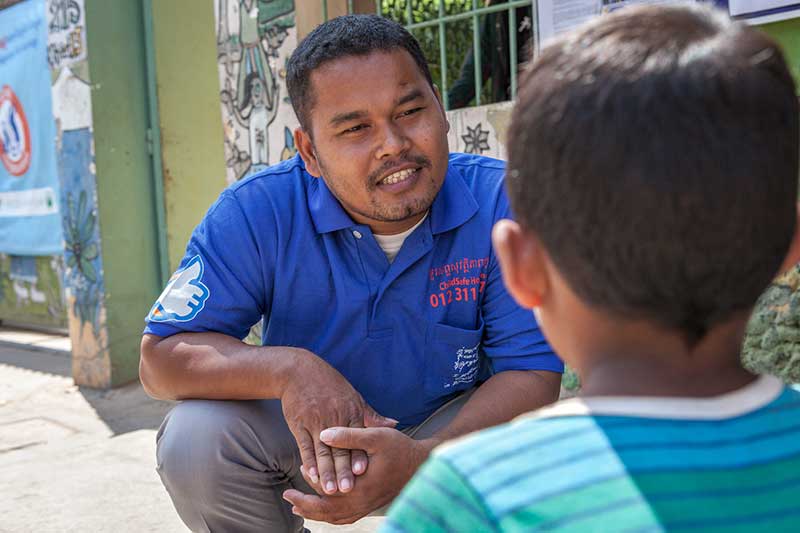
Friends-International is first and foremost a Child Protection Agency and as a ChildSafe organization we prioritize and implement ChildSafe standards throughout the organization’s operations and processes. This includes:
Child Protection Policies (CPP)
CPP are embedded in all our guidelines, regulations and operations in all Friends Alliance Programs. We ensure that their principles are respected at all times by our staff, our beneficiaries and all visitors. We support our partner organizations to build effective and operational Child Protection Policies for themselves.
Protection from Sexual Abuse and Exploitation (PSEA)
We expanded our CPP to focus on protecting all beneficiaries (adults and children) from all abuses, particularly on sexual abuse. We not only build these systems within all our Friends Alliance Programs, but we support our Partners and consult with Governments and NGOs on developing their own.
Child Protection in Emergency Situations (CPIE)
We have adapted our CPP’s to various situations and emergencies as this is an increasingly important issue: we have developed and prepared systems for the protection of children in times of emergency, and post emergency.
If your organization is interested in learning more and developing strong and effective policies, contact : info@friends-international.org
System Building
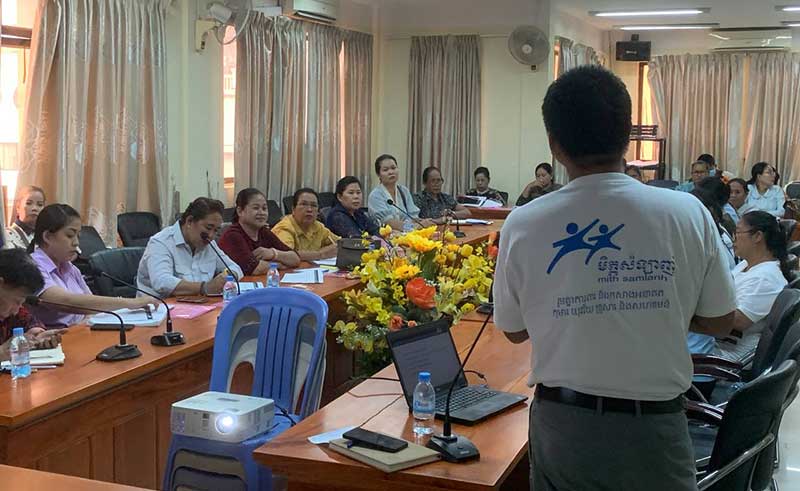
We work closely with Governments and International Bodies (e.g. UNICEF) to build child protection systems in the areas we are active and beyond. Including:
We provide training and support to Governments to build Child Protection systems in their institutions (Thailand, Indonesia).
We support Governments to create policies and processes (moratorium on orphanages in Myanmar 2017, drugs harm reduction in Cambodia, family reintegration and foster care in Cambodia…).
We build coordination between NGOs, Governments and International Bodies (Coordination of the Partnership Program for the Protection of Children, 3PC, in Cambodia with the Ministry of Social Affairs, Youth and Veterans, UNICEF and NGOs).
If your organization / office is interested in learning more, contact : info@friends-international.org
Continuum of Care
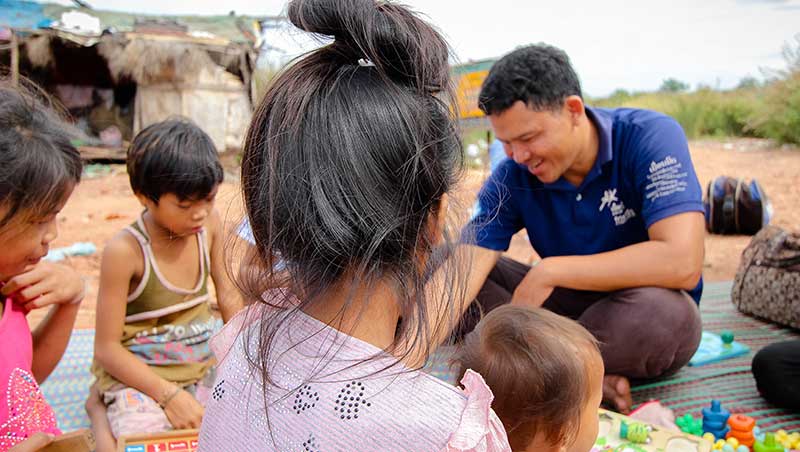
Built upon our two programmatic approaches of Saving Lives and Building Futures, a thorough case management process ensures the best life outcome for those we work with. We always ensure that our services are responding to all needs of the children, youth or family members. We ensure too that those services are provided over the necessary period of time, allowing for effective change to take place. This can take years for some more complex cases.
Holistic Approaches
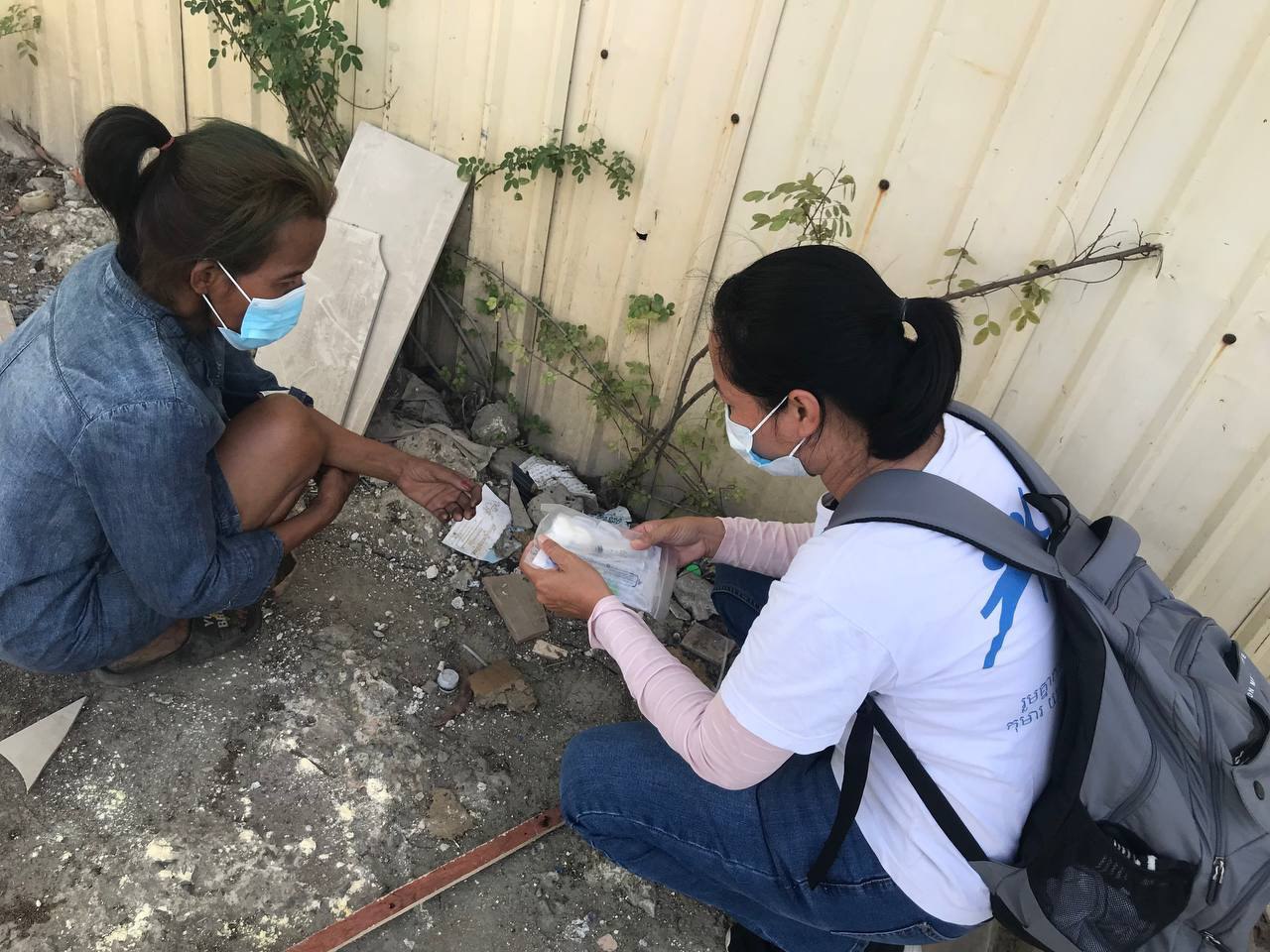
We always take approaches and formulate solutions which consider and address all factors affecting those we work with. We provide holistic services which respond to a nexus of often complex and interlinked needs – examples include:
Holistic Drugs Project
Faced with a rapidly evolving increase in drug use in Cambodia from 1999, we started a holistic drug project including: prevention/education, harm reduction services (the first organization in Cambodia with a Harm Reduction license), detoxification (detoxification center and community-based detoxification services), rehabilitation, reintegration and relapse prevention.
Holistic Family Project (Family+)
Since 1995, we have developed a leading family reintegration project that continues to expand and be refined. It includes: child emergency housing and short-term foster care, family tracing, family support and preparation, family reintegration, long term foster care for children who cannot return to their kinship families, independent living for older youth, and support to Residential Care Institutions to reintegrate children and evolve their services. We have also developed services which ensure that the children of sex-workers, who are left alone at night, have a place to stay with a supervising adult to ensure their safety and well-being.
Holistic HIV/AIDS Project
We started this in 1996 to respond to the impact of HIV in Cambodia, which was at that time among the countries in the world with the highest prevalence rates. We designed a full project including: education/prevention, harm reduction (condom distribution, behavior change), day-care for children in hospital setting, support to families affected by HIV (including family placement of orphaned children), access to Anti-Retroviral Treatment, support groups and family support.
Mobility

To provide relevant services to populations that are highly mobile, Friends-International focused on the mobility of its services, including:
Mobile education / Mobile Library
We often work with communities which are distant from each other, so we created mobile services, including a Mobile School providing non-formal education and life skills education.
Mobile Vocational Training
We developed mobile vocational training to access remote areas, for people unable to leave their homes (mothers of younger children for example): teachers come into communities and provide vocational training directly in people’s homes (Home-Based Training).
Mobile Employment Services
To ensure that more people have access to employment, part of Futures Employment was designed as a mobile service, providing job readiness training and supporting people to find employment closer to their homes or to start a business in their community.
Night Bus
These buses provide services and support to street-based sex workers (male, female and non-binary). Buses are equipped with a clinic, a space for self-care (including make-up), counseling and prevention/education training. Alongside the Futures Employment Team they provide sex-workers with alternatives to sex work. The team also identifies children who are either on the streets with their sex-working parents, or at home alone. Systems for night care with adult supervision have been created for them.
ChildSafe Agents
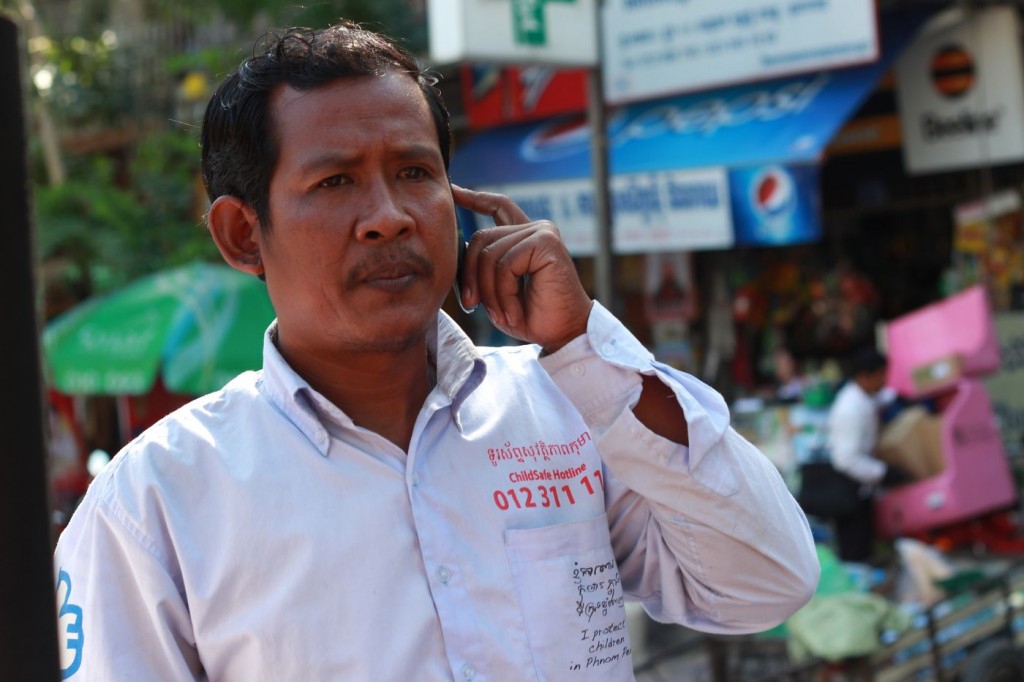
We designed a structured system to build a community of volunteers protecting children: the ChildSafe Agents. This system allows for easy replication and alliance building with partner organizations.
We identify, train and support individuals in communities, in companies, in organizations and on the streets to be Agents of Child Protection. Child Safe Agents protect children from a range of risks and abuses, and many are specialized to respond to specific issues in their community (drugs, violence, alcohol, etc.). ChildSafe Agents are key partners in supporting many project activities.
ChildSafe Agents are supported by Partner Organizations’ Teams and the ChildSafe Hotlines .
Futures Employment
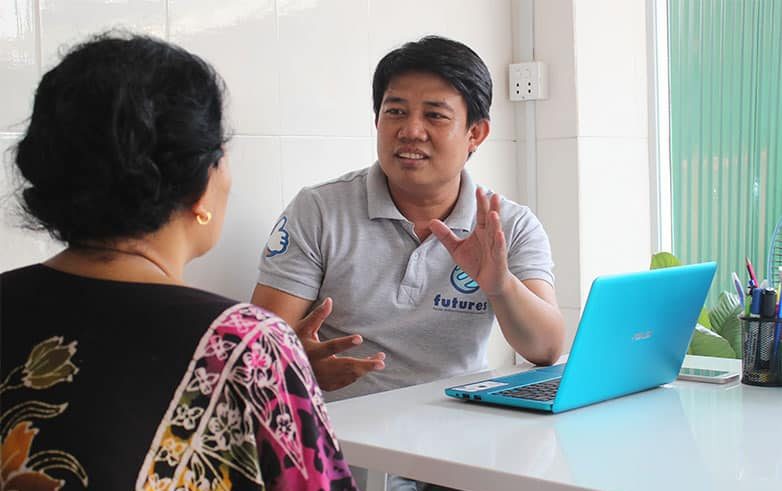
Since 2017 we have supported young people and caretakers to access gainful and dignified employment with a needs-based system, the Futures Employment Program. Based on a solid assessment, personalized services are provided that can include hard skills, soft skills, general education, life skills and/or psycho-social support. When the students are ready the Futures team supports them to find employment or start their own business. This continues over time to ensure that their placement is successful and to support its further development. The Futures model was designed in collaboration with partners and is being replicated and enriched through partnership. This international project is coordinated and powered by Friends-International.
If your organization is interested in learning about Futures and joining the Futures Program, contact info@friends-international.org
Vocational Training Businesses

We developed award-winning Vocational Training Businesses (VTB) from 1996 onward. These VTB provide real-life and hands-on training within functioning business environments such as shops, restaurants and other services. These training businesses are linked to the Futures Employment process and provide hands-on hard skills training to youth and caretakers: by training in a real-life environment with real customers, they gain real skills and are immediately employable. Revenues from the trainings are used to ensure the sustainability of the training and the social services linked to the trainings.
Incubation
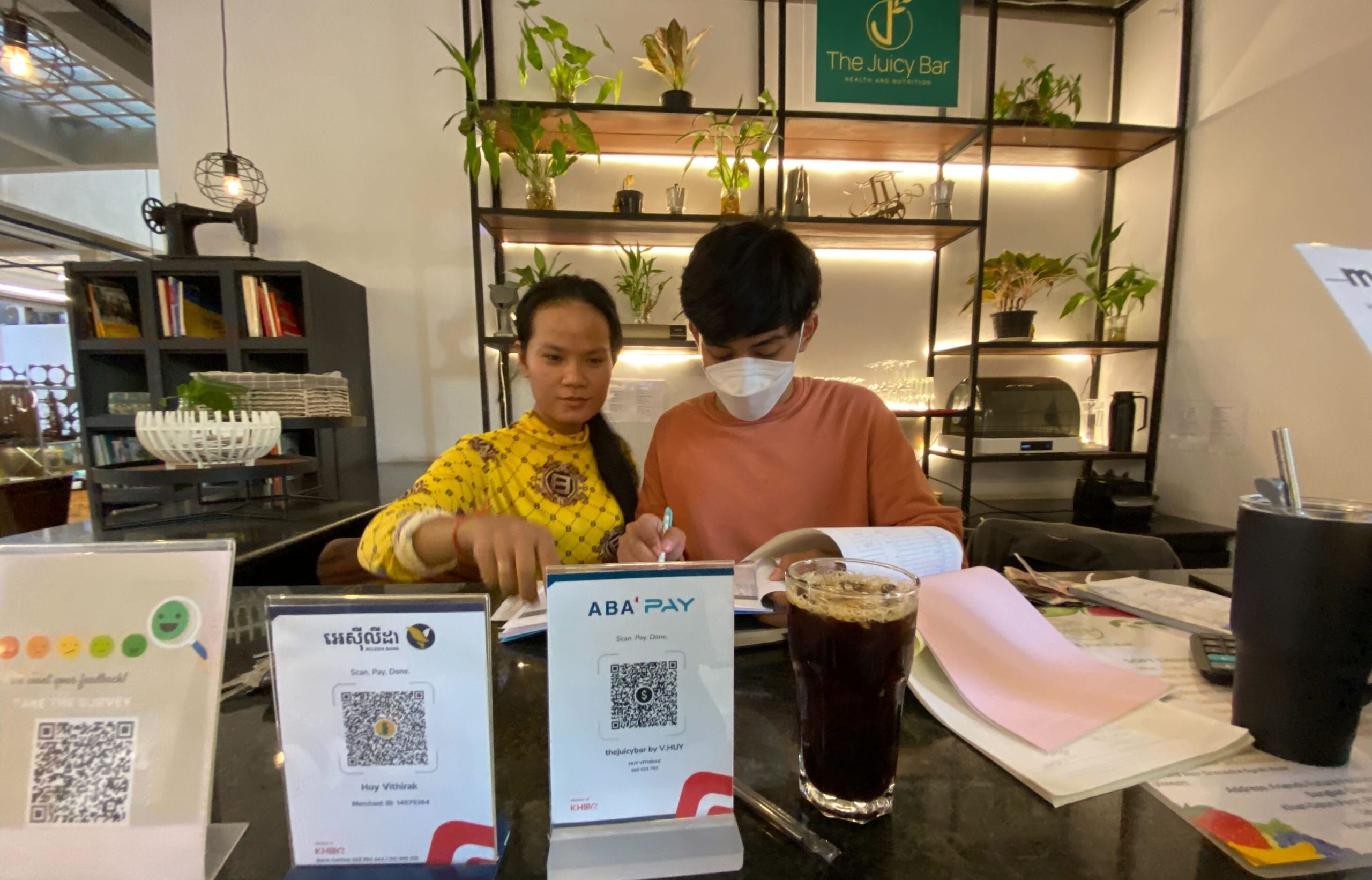
We support young Cambodians to start their own initiatives. Futures and F3 teams support students from vocational training to define, design and set-up their own business in their community. The teams provide seed-funding, ensure follow-up and support the growth of these initiatives.
To learn more about, or to join, this project, contact bunthek@friends-international.org
F3 (Friends Futures Factory)

We created F3 (Friends Futures Factories) in 2018 as spaces dedicated to vocational training businesses, social enterprise and creativity. Open to the public, we offer space for customers to enjoy the services of vocational training businesses, social businesses started by young creatives as well as cultural events and entertainment. This allows us to give students a place to learn with more customers, supports young people in the creative fields (design, music, theater, art…) and generates incomes used to support our various social services. Visit F3 in Phnom Penh and Siem Reap.
Social Franchising
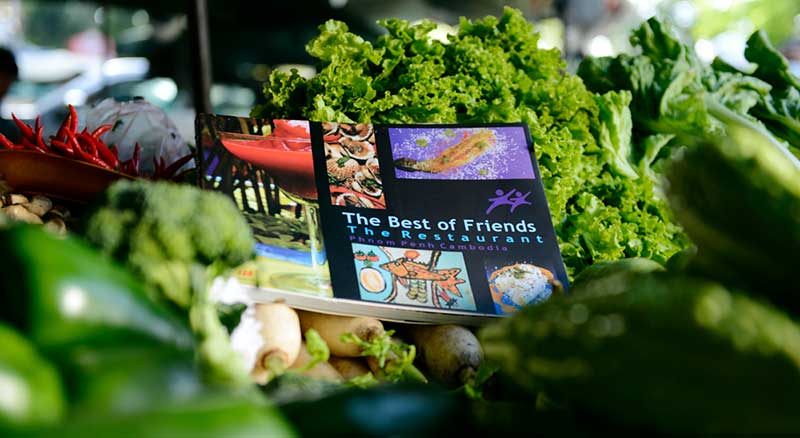
We build our projects to be easily replicable. With material, training and technical support this means that our programs and partners can readily replicate our successful social and social business models in their own programs. The Social Franchising systems we have built include Restaurant Vocational Training Businesses, employment services (FUTURES) and child protection systems (ChildSafe Movement and ChildSafe Agents).
Campaigns
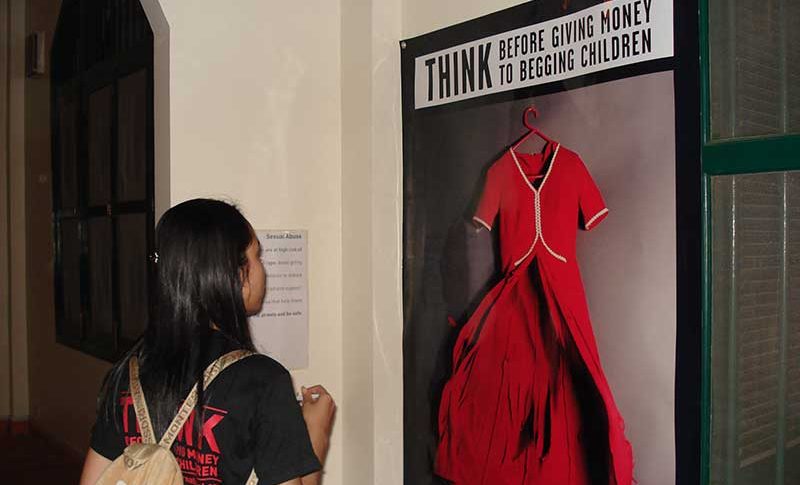
We carry out advocacy on child protection issues through a nexus of campaigns which are designed for awareness raising, and to promote behavior and system change. Over the years, we have launched various campaigns with major international impact, including Think Before Giving To Begging Children (collaboration with Pascal Colrat) Children Are Not Tourist Attractions in 2011, Don’t Create More Orphans in 2015, and Orphanages Tear Families Apart also 2015.
Alliances

We forge strong networks with like-minded organizations which enable us all to build coordination and collaboration, increase our impact and improve our services through sharing best practice and training, and to facilitate system change through collective action, advocacy and lobbying. Common projects include:
Migration
A project on the border between Thailand and Cambodia: it involves on the Thai side Peuan Peuan and on the Cambodian side Damnok Toeuk, Krousar Thmey and Kaliyan Mith .
Drugs
We created this project in Cambodia involving Mith Samlanh, Korsang , Mlop Tapang .
Family preservation and family reintegration
We have developed family reintegration and alternatives such as foster care and local adoption, involving Mith Samlanh, Kaliyan Mith.
Vocational Training and Employment (Futures Employment)
We developed this project alongside Mith Samlanh and Mlop Tapang replicating it among various organizations in the region that work together to develop and adapt new approaches.
Child Protection
As we are child protection agencies, all organizations in the alliance must build strong effective child protection systems for themselves and for their communities. Using the Child Protection Policies / Protection from Sexual Exploitation and Abuse as well as the ChildSafe systems (training, ChildSafe Agents, Hotlines…), organizations are reinforcing the protection of children globally (South East Asia, Jordan, Kenya, South Africa, Nepal, India, Europe…).
If your organization is interested in joining any of these Alliances, contact us by email at info@friends-international.org













